Nestled in all corners of the world are beautiful places to go diving. Many areas
provide views of historic wreckage from naval battles, showing the brutal history and commemorating
it all at once. Others allow you to have close encounters with marine life, offering an experience that
cannot be recreated anywhere else. The beauty is beyond your wildest dreams, but that’s only if you
remember the number one rule to diving: maintain it as it is for those who will be there after you. The
beauty of dive sites are mostly in their wildlife and history, but these exemplify all of that and more.
1. Malaysia : Sipadan Island :-
This place is known as a ‘must go to’ place for all serious divers. Located off the island of Borneo, this
is the only oceanic island in Malaysia. It was actually formed by living corals that grew on top of an
extinct volcano cone and took thousands of years to develop. As the heart of the Indo-Pacific basin, it
is the centre of one of the richest marine habitats in the entire world. Ther are over 3,000 fish species
and hundreds of species of coral that have been classified in this amazing ecosystem. Other animals
divers can see include green and hakwsbill turtles, barracuda, trevally, bumphead parrotfish, scalloped
hammerhead sharks, eagle rays, whale sharks, and manta rays. There is also a turtle tomb formed by
an underwater limestone cave.
According to many dive journals, it is one of the top diving destinations on Earth. They can’t be wrong
when even Jacques Cousteau has said, “I have seen other places like Sipadan, 45 years ago, but now
no more. Now we have found an untouched piece of art”.
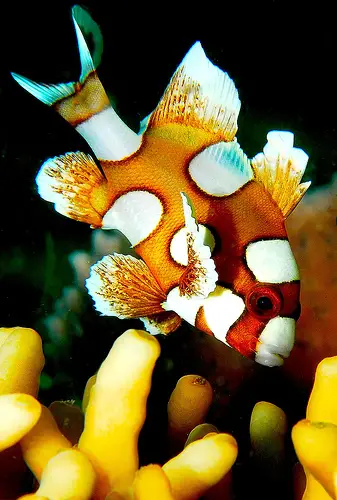
2. Israel : Eilat :-
Known as the world’s original underwater classroom, Eilat is located at the extreme southern tip of
Israel at the Gulf of Aqaba in the Red Sea, this wondrous spot is conveniently placed between jagged
mountains and water as clear as crystal. Though tourists often come through for the warm weather,
the coral fish are what make diving here spectacular. The reef in this area is approximately 1,200
meters in length, and the calm and warm sea frequently has high visibility. Also at Eilat is another spot
called the Satil Wreck, where you can view both the downed vessel and a myriad of fish that have
made it their home.
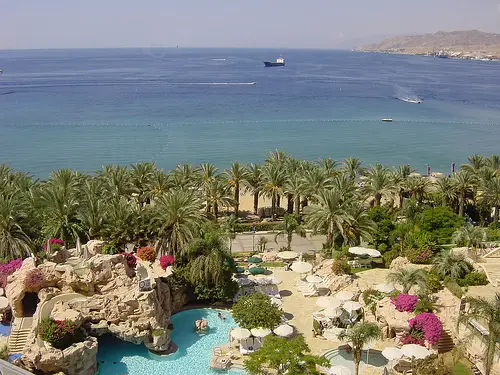
3. United Kingdom : Isle Of Man :-
Before 2003, finding accommodations in the area was difficult (but not impossible). However, many
services at the Isle of Man have since opened, allowing many divers the possibility to see – as they
boast – some of the finest wreckage, scenery, and drift all while diving in the clearest waters of the UK.
The marine life is nothing to snub your nose at either, with varieties of crab, jellyfish, starfish and many
others available to see. Its popularity has increased with new services.
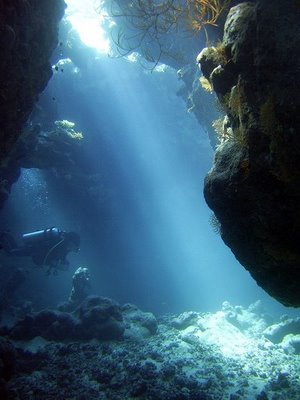
4. Portugal : Shipwreck Of The Madeirense :-
Some 34 meters beneath the surface of the Atlantic Ocean near Porto Santo, all manners of marine
creatures have made their home at the wreckage of the Madeirense in Portugal. Diving is available
purely to see the marine life or to take an underwater archaeological expedition to view the ancient
cannons of the sunken ship. This one, however, has been noted by some to be a ship that was downed
to make a dive spot and entice the sealife to inhabit it, which has definitely worked with species like
the manta ray.

5. Greece : Argassi, Zante :-
Though the marine life may not be comparable to the Red Sea, the most enticing part about this dive
spot are the caves. Some may be a bit frightful for new divers, but they provide an amazing experience.
They are at a variety of levels, some as deep as 1.2 meters to enter. The other dive spots in this area
boast plentiful wildlife and remarkable shipwrecks. Divers can engage in underwater photography to
capture the moment and learn a new skill that can be used in future expeditions.
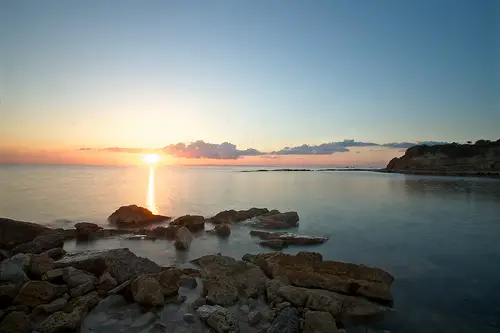
6. Marshall Islands : Jaluit Atoll :-
Once upon a time, it was the capital for the German and Japanese occupations in World War II. Now, it
is home to an amazing experience for those who love to dive. The undersea fauna is like nothing ever
seen before, with some people having reported seeing sharks, eels, or amazing fish. The battle
wreckage only extends the beauty by memorializing those who fought during the war.

7. Cook Islands : Rarotonga :-
Noting that they are one of the largest sites for humpback whale sightings while diving, the Pacific site
of Rarotonga is home to over 70 species of coral, reef sharks, moray eels, turtles, rays, and other such
wildlife. The visibility and comfort of the water also make this area a wonderful place to go diving, but it
might also have something to do with the viewable landscape being entirely surrounded by water.
Visitors have noted that the northern sites are filled mostly by the smaller fish, while they also say the
southern side is home to the bigger animals.
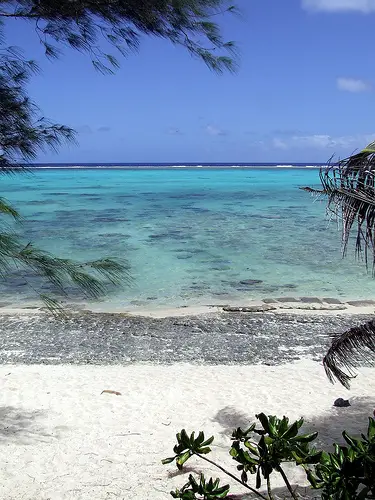
8. New Zealand : Poor Knights Islands :-
With giant tropical fish, you couldn’t go wrong diving at New Zealand’s Poor Knights Islands. On
occasion, one might catch a glimpse of a rare species in this region where the tropic and temperate
currents combine. There are caves to be explored, allowing even more opportunities to experience this
gorgeous dive site. Visitors here have also noted seeing killer whales, which only makes this an even
more fantastic area.
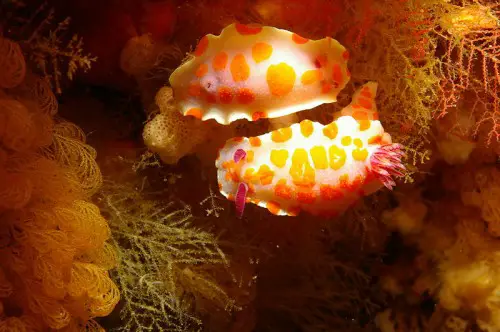
9. Madagascar :-
As home to one of the world’s largest continuous coral reefs, Madagascar is famous for exotic species
both in and out of water. There is the possibility of viewing some of the 1300 species of unique bony
fish, 56 types of shark, 5 varieties of marine turtles, and numerous other underwater life. The entire
island provides dive sites on nearly every coast, making it difficult to pick just one in the north, south,
east, or west.
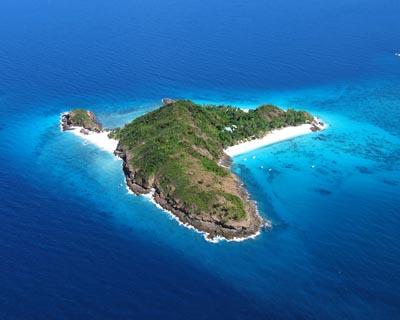
10. Curaao :-
With reefs that have been developing for millions of years and lava rock that has continued to support
coral for centuries, this island of the Dutch Caribbean supports a scene much like an underwater
garden. Delicate corals provide homes for brightly colored tropical fish. Not only do they have brilliant
views of the many species that make that part of the ocean home, but they also have dive sites for
shipwrecks. Because of the vastness of the species surrounding it, there are more than 60 sites to
choose from all over Curaçao.
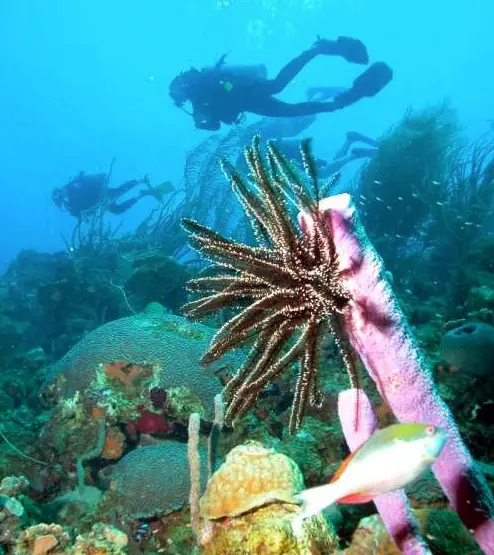
provide views of historic wreckage from naval battles, showing the brutal history and commemorating
it all at once. Others allow you to have close encounters with marine life, offering an experience that
cannot be recreated anywhere else. The beauty is beyond your wildest dreams, but that’s only if you
remember the number one rule to diving: maintain it as it is for those who will be there after you. The
beauty of dive sites are mostly in their wildlife and history, but these exemplify all of that and more.
1. Malaysia : Sipadan Island :-
This place is known as a ‘must go to’ place for all serious divers. Located off the island of Borneo, this
is the only oceanic island in Malaysia. It was actually formed by living corals that grew on top of an
extinct volcano cone and took thousands of years to develop. As the heart of the Indo-Pacific basin, it
is the centre of one of the richest marine habitats in the entire world. Ther are over 3,000 fish species
and hundreds of species of coral that have been classified in this amazing ecosystem. Other animals
divers can see include green and hakwsbill turtles, barracuda, trevally, bumphead parrotfish, scalloped
hammerhead sharks, eagle rays, whale sharks, and manta rays. There is also a turtle tomb formed by
an underwater limestone cave.
According to many dive journals, it is one of the top diving destinations on Earth. They can’t be wrong
when even Jacques Cousteau has said, “I have seen other places like Sipadan, 45 years ago, but now
no more. Now we have found an untouched piece of art”.

2. Israel : Eilat :-
Known as the world’s original underwater classroom, Eilat is located at the extreme southern tip of
Israel at the Gulf of Aqaba in the Red Sea, this wondrous spot is conveniently placed between jagged
mountains and water as clear as crystal. Though tourists often come through for the warm weather,
the coral fish are what make diving here spectacular. The reef in this area is approximately 1,200
meters in length, and the calm and warm sea frequently has high visibility. Also at Eilat is another spot
called the Satil Wreck, where you can view both the downed vessel and a myriad of fish that have
made it their home.

3. United Kingdom : Isle Of Man :-
Before 2003, finding accommodations in the area was difficult (but not impossible). However, many
services at the Isle of Man have since opened, allowing many divers the possibility to see – as they
boast – some of the finest wreckage, scenery, and drift all while diving in the clearest waters of the UK.
The marine life is nothing to snub your nose at either, with varieties of crab, jellyfish, starfish and many
others available to see. Its popularity has increased with new services.

4. Portugal : Shipwreck Of The Madeirense :-
Some 34 meters beneath the surface of the Atlantic Ocean near Porto Santo, all manners of marine
creatures have made their home at the wreckage of the Madeirense in Portugal. Diving is available
purely to see the marine life or to take an underwater archaeological expedition to view the ancient
cannons of the sunken ship. This one, however, has been noted by some to be a ship that was downed
to make a dive spot and entice the sealife to inhabit it, which has definitely worked with species like
the manta ray.

5. Greece : Argassi, Zante :-
Though the marine life may not be comparable to the Red Sea, the most enticing part about this dive
spot are the caves. Some may be a bit frightful for new divers, but they provide an amazing experience.
They are at a variety of levels, some as deep as 1.2 meters to enter. The other dive spots in this area
boast plentiful wildlife and remarkable shipwrecks. Divers can engage in underwater photography to
capture the moment and learn a new skill that can be used in future expeditions.

6. Marshall Islands : Jaluit Atoll :-
Once upon a time, it was the capital for the German and Japanese occupations in World War II. Now, it
is home to an amazing experience for those who love to dive. The undersea fauna is like nothing ever
seen before, with some people having reported seeing sharks, eels, or amazing fish. The battle
wreckage only extends the beauty by memorializing those who fought during the war.

7. Cook Islands : Rarotonga :-
Noting that they are one of the largest sites for humpback whale sightings while diving, the Pacific site
of Rarotonga is home to over 70 species of coral, reef sharks, moray eels, turtles, rays, and other such
wildlife. The visibility and comfort of the water also make this area a wonderful place to go diving, but it
might also have something to do with the viewable landscape being entirely surrounded by water.
Visitors have noted that the northern sites are filled mostly by the smaller fish, while they also say the
southern side is home to the bigger animals.

8. New Zealand : Poor Knights Islands :-
With giant tropical fish, you couldn’t go wrong diving at New Zealand’s Poor Knights Islands. On
occasion, one might catch a glimpse of a rare species in this region where the tropic and temperate
currents combine. There are caves to be explored, allowing even more opportunities to experience this
gorgeous dive site. Visitors here have also noted seeing killer whales, which only makes this an even
more fantastic area.

9. Madagascar :-
As home to one of the world’s largest continuous coral reefs, Madagascar is famous for exotic species
both in and out of water. There is the possibility of viewing some of the 1300 species of unique bony
fish, 56 types of shark, 5 varieties of marine turtles, and numerous other underwater life. The entire
island provides dive sites on nearly every coast, making it difficult to pick just one in the north, south,
east, or west.

10. Curaao :-
With reefs that have been developing for millions of years and lava rock that has continued to support
coral for centuries, this island of the Dutch Caribbean supports a scene much like an underwater
garden. Delicate corals provide homes for brightly colored tropical fish. Not only do they have brilliant
views of the many species that make that part of the ocean home, but they also have dive sites for
shipwrecks. Because of the vastness of the species surrounding it, there are more than 60 sites to
choose from all over Curaçao.

No comments:
Post a Comment